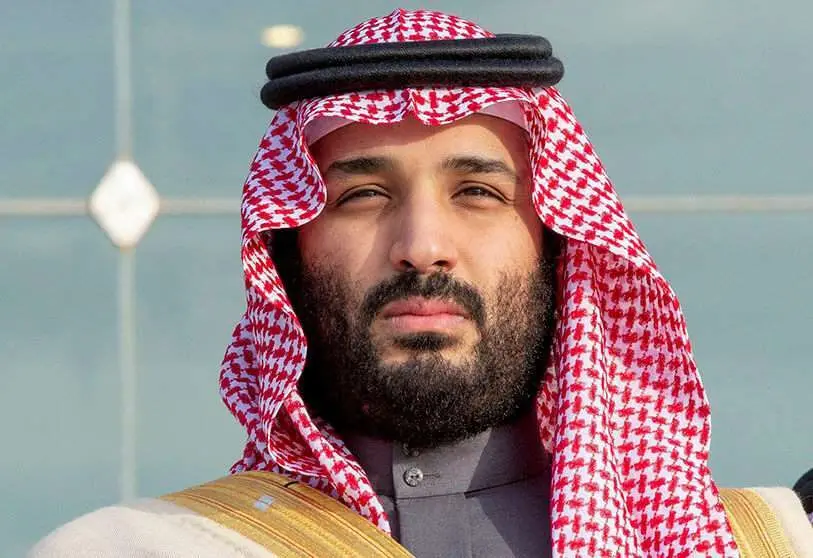Saudi Arabia launches $1.3 billion private sector stimulus programme

Saudi Arabia's Crown Prince Mohammed bin Salman announced on Tuesday the launch of a new economic project called 'Shareek'. State-owned oil company Saudi Aramco and petrochemicals company SABIC will lead the $1.3 billion investment. The Saudi government aims to boost its ties with the private sector and boost its still oil-dependent economy.
The project includes investment support of 5 billion rials between now and 2030 for private sector companies, as well as 3 billion rials from the country's sovereign wealth fund, the Public Investment Fund (PIF), and 4 billion rials, half of which would be foreign investment, as part of a new state campaign for economic diversification. The total amount would come to 27 billion rials through public spending and domestic consumption.
Mohammed bin Salman, accompanied by a number of ministers, senior businessmen and heads of major Saudi companies, stressed during the meeting the strategic priority of maintaining a robust private sector to enable "the continued growth, development and success of the nation's economic prosperity". MBS expects the private sector to play a key role in Vision 2030.
"Building a vibrant and prosperous private sector is one of the Kingdom's national priorities and that is why today we are inaugurating a new and more powerful era in terms of cooperation and partnership between the Government and the private sector. The 'Shareek' programme will strengthen the partnership with the private sector and aims to support local businesses and enable them to unlock new local investments valued at 5 billion rials until the end of 2030," MBS announced.

"The 'Shareek' programme will boost the private sector to create hundreds of thousands of new jobs and boost the private sector's contribution to GDP to 65 per cent by the end of the decade, as part of the Vision 2030 goals," Bin Salman said. Plans also include moving up the global ladder of the world's largest economies. Saudi Arabia aims to climb three places to 15th position.
State-owned companies Saudi Aramco and SABIC would account for 60 per cent of the 5 billion rial investment. The crown prince, who holds de facto power in Saudi Arabia, said the government has asked the largest companies in the programme to cut their dividends to increase capital spending, which would lead to the company's own growth. "In return, the Saudi government will help them with regulations, more subsidies and other incentives," he said.
Bin Salman assured that dividends for those holding Aramco shares would remain stable. "We promised them and we will keep it." The Saudi government continues to own 98% of the firm. In addition, this voluntary programme has defined selection criteria, meaning that eligible companies will work closely with the relevant ministries to create tailor-made investment plans. Each project will be monitored to ensure that it provides benefits in contribution to GDP and job creation.
The 'Shareek' scheme will operate with the approval of the World Trade Organisation (WTO) and in accordance with other relevant national and international regulations and policies, Saudi officials said, and the first Memoranda of Understanding between large companies and 'Shareek' are expected to be initialled as early as June.
Mohamed Bin Salman, who also holds the presidency of the Economic and Development Affairs Council, has been trying to push forward an ambitious economic plan that will allow Saudi Arabia to minimise its dependence on 'black gold'. However, multiple diversification programmes have not been enough to reverse the dynamics, and the COVID-19 crisis, with the corresponding drop in oil prices, has deepened the Kingdom's need to undertake the great transition.

The Saudi economy remains dependent. The Kingdom is home to 17 per cent of the world's reserves and, according to OPEC data, the oil and gas sector accounts for approximately 50 per cent of Saudi GDP and about 70 per cent of export revenues. Moreover, its crude oil sales fell to an all-time low of 4.98 million barrels per day in 2020, setting off alarm bells.
This project began with the IPO of the state-owned oil company Saudi Aramco, then with investment opportunities in the Kingdom worth $6 billion over the next decade, then with the launch of a cloud data centre by Google Cloud and the development of Coral Bloom, another mega tourism project in the Red Sea, and even a futuristic city in the desert.
This battery of measures is part of the final objective set by the government. On the horizon is the Vision 2030 plan, the ace up the sleeve to fulfil Saudi aspirations. That is, an economic project to find new profitable avenues that can replace or, at the very least, support oil revenues.








